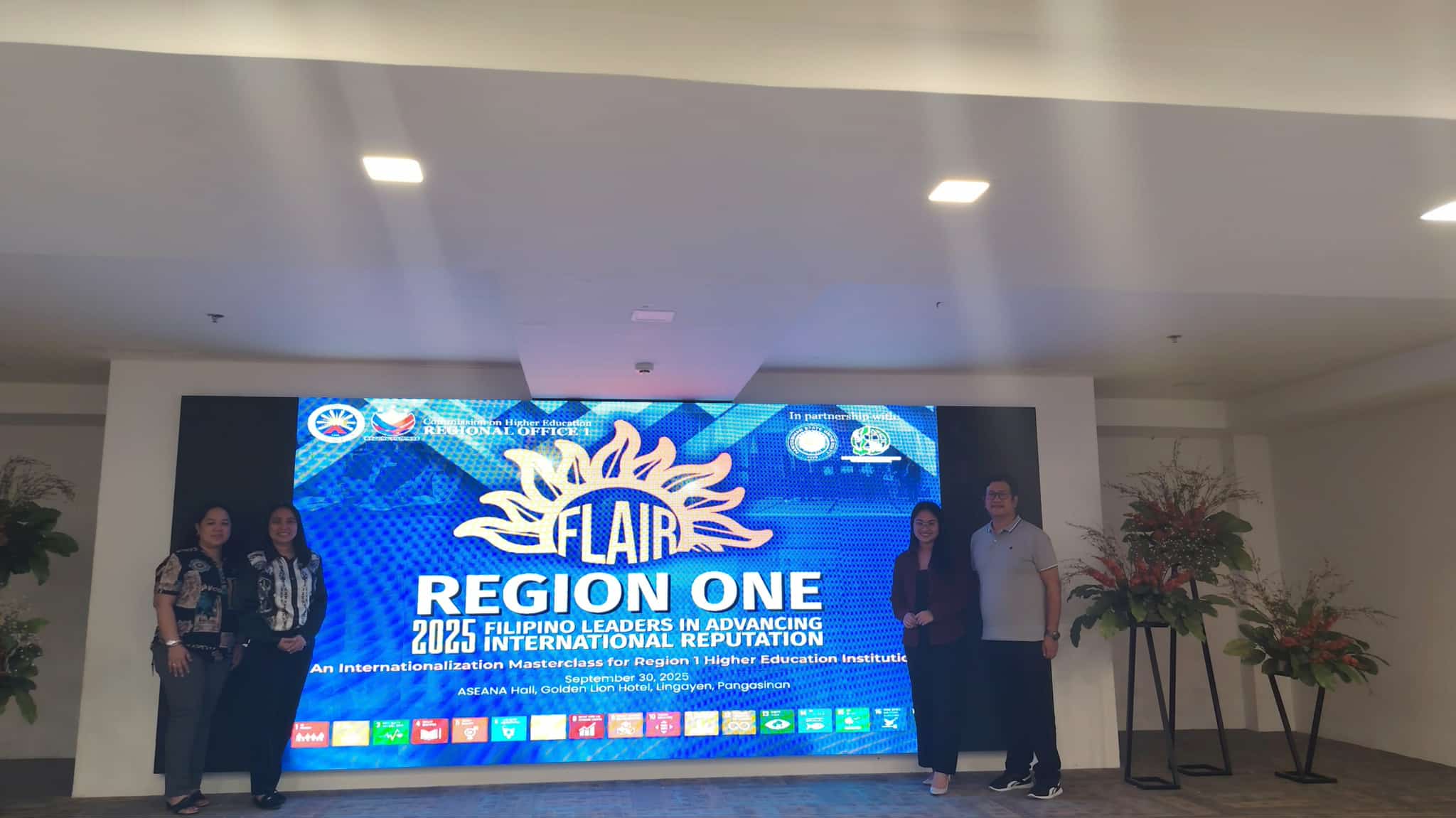University of Luzon Delegates Participate in FLAIR 2025: Strategizing for Global Benchmarking
Posted on 2nd of Oct 2025 by UL AdministratorThe University of Luzon demonstrated its unwavering commitment to global academic excellence by participating in the FLAIR 2025 (Filipino Leaders in Advancing International Rankings) convention. The University’s delegation, which highlighted a commitment to inclusive representation from administration, faculty, and the student body, included Ms. Annabelle Bamba Cua, Coordinator for International Relations; Engr. Melvin Eucapor and Prof. Hapilen Dacasin, both esteemed faculty members of the College of Engineering and Architecture; and Mhawen Mercado, a student of BS Accountancy and active member of ULIVE (University of Luzon Integrated Volunteer Extensionists). The pivotal event, which gathered academic leaders and strategists from Region One, took place on September 30, 2025, at the ASEANA Hall of the Golden Lion Hotel in Lingayen, serving as a critical platform for strategic discourse on elevating Philippine higher education on the world stage.
FLAIR 2025 was designed to empower institutions with the knowledge and actionable plans necessary to successfully navigate the complex landscape of international university rankings. The University of Luzon’s delegation engaged in rigorous workshops and presentations centered on understanding and optimizing performance across key metrics. Core sessions included comprehensive updates on the current World University Rankings methodologies, where experts dissected the specific parameters related to research output, institutional reputation, faculty-student ratio, and international outlook. The focus was on deciphering the nuances of these global benchmarking tools to ensure that strategies implemented locally yield measurable international impact.
A significant portion of the day was dedicated to hands-on workshops aimed at “Shaping the Readiness of the Universities to Compete in the WUR/International Rankings.” Discussions moved beyond mere theory, providing practical frameworks for institutional self-assessment and targeted intervention. This proactive approach ensures that the insights gained are immediately translatable into policy adjustments and resource allocations that enhance the quality of academic programs and research initiatives. The University of Luzon is poised to apply these sophisticated strategies to further elevate its institutional processes, fostering a culture of continuous improvement that directly benefits every member of the academic community.
The participation in FLAIR 2025 signals a clear directive for the future of the University of Luzon: a sharpened focus on producing world-class graduates and pioneering research. The strategic intelligence brought back by the delegation is set to inform the University’s next phase of development, impacting everything from curriculum design to international partnerships. For all Luzonians, this engagement means an enriched learning environment where the standards of education are calibrated against the best universities worldwide, ensuring their degrees hold increasing relevance and distinction in the global marketplace.
Ultimately, the strategies adopted during the FLAIR 2025 convention align directly with several key United Nations Sustainable Development Goals (SDGs). By prioritizing the pursuit of global rankings, the University of Luzon is fundamentally committed to SDG 4, Quality Education, ensuring inclusive and equitable quality education and promoting lifelong learning opportunities for all. Furthermore, the emphasis on pioneering research and institutional improvement directly addresses SDG 9, Industry, Innovation, and Infrastructure, by building resilient infrastructure and fostering innovation. Lastly, the collaborative nature of the FLAIR forum, which encourages inter-university knowledge exchange and shared goals, is a powerful manifestation of SDG 17, Partnerships for the Goals, underscoring the belief that collective effort is essential for achieving these ambitious global targets.






